Sleeve Gastrectomy or Gastric Bypass: Which Bariatric Surgery is Right for You?

1.What is the Sleeve Gastrectomy?
2. How does Sleeve Gastrectomy help in weight loss?
3. How long does it take for the surgery?
4. Are there any postoperative complications?
5. What is Gastric Bypass surgery?
6. How does Gastric Bypass surgery help in weight loss?
Sleeve Gastrectomy and Gastric Bypass are two commonly performed bariatric surgeries. Higher BMI can lead to serious weight-related health problems, such as type 2 diabetes, high blood pressure or severe sleep apnea. In general, bariatric surgeries such as sleeve gastrectomy or Gastric Bypass Surgery are recommended to individuals whose body mass index (BMI) is 37.5 or more in Indian population (extreme obesity). Gastric bypass is a slightly more complicated procedure compared to Sleeve Gastrectomy. This is because gastric bypass is a two-step procedure, while sleeve gastrectomy involves only one step. The type of surgery when recommended for weight loss depends on the medical conditions of the patient. This blog will elucidate the pros and cons of both surgeries, and help patients in identifying the right treatment plan.
What is Sleeve Gastrectomy?
In Sleeve Gastrectomy surgery, the majority of the stomach gets removed, making the new stomach into a small ‘banana-like’ tube. This limits the amount of food that can be ingested at a time. Also, with the removal of the ‘fundus’ of the stomach, the ghrelin hormone is decreased and this prevents the person from feeling hungry. Ghrelin is a hormone produced by the fundus of the stomach, which regulates satiety and hunger for an individual. The more this hormone is produced, the more chances for increased hunger. While fasting, the production of this hormone increases and makes one feel extremely hungry.
How does Sleeve Gastrectomy help in weight loss?
Weight loss is purely dependent on decreasing the amount of food one can eat. By decreasing the food intake, limits the amount of calories ingested and helps you lose weight. Hence, in medical terms, this procedure is also called a purely restrictive procedure. A patient can expect to lose around 50-60% of the excess weight over the next 6-12 months after the surgery.
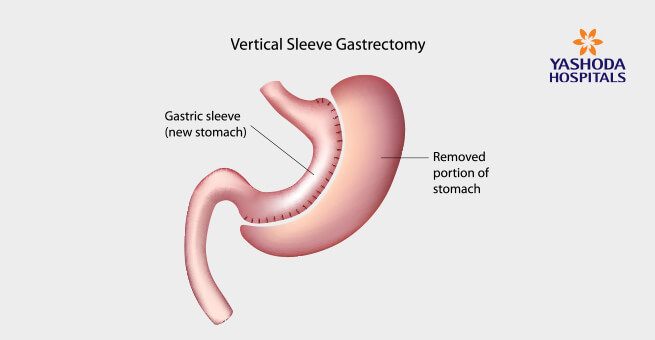
How long does it take for the surgery?
The surgery usually takes around 1-2 hours depending on the body habitus. It is a minimally invasive surgery which is performed laparoscopically and requires 4-5 small incisions on the body. After the surgery, the patient needs to stay in the hospital for at least 1-2 nights depending on the progress of pain and nausea.
Are there any postoperative complications?
The immediate complications are less with this procedure if performed by an experienced and skilled team of surgeons. The most common long term complication is the development of Gastroesophageal Reflux or heartburn, which may happen in less than 5% of the patients. The patient may need to use antacids on a long term basis to get relief from this condition. The other concern is the tendency for the stomach to stretch. If the sleeve gastrectomy is not done properly, it may result in weight regain. The rate of vitamin deficiencies is low with sleeve gastrectomy, if the patient takes vitamins regularly and follows up with the surgeon and dietitian periodically.
What is Gastric Bypass surgery?
In Gastric Bypass surgery, the stomach is divided into 2 pieces: a small pouch connected to your esophagus or food pipe and a large part called the gastric remnant. The aforementioned small pouch is in turn connected to a piece of small bowel which is diverted.
How does Gastric Bypass surgery help in weight loss?
The surgery allows the food to pass directly from the small pouch into the small bowel, resulting in a bypass from the rest of the stomach, liver and pancreatic juices which then limits the digestion and absorption. This creates malabsorption limiting the intake of calories that will be absorbed by the body. Hence, in medical terms, this operation is called a combination of the restrictive and malabsorptive procedure.
The weight loss is slightly more in these patients than the typical sleeve gastrectomy patient. The patient can expect to lose around 60-75% of the excess weight over the next 12-18 months after the surgery.
The re-routing of the bowel creates changes in hormones that regulate insulin and it’s resistance, which results in significant improvement in Diabetes mellitus in these cases compared to sleeve gastrectomy.
This surgery is usually reserved for patients who need to lose a significant amount of weight and are suffering from diabetes mellitus & hypertension.
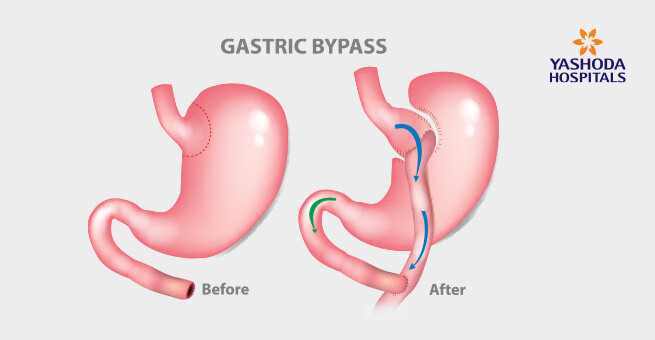
How long does it take for the surgery?
The surgery typically takes 2-3 hours to complete and is also performed laparoscopically with 5-6 small incisions on the body. Usually, the patient needs to stay in the hospital for 2-3 nights after the operation.
Are there any postoperative complications?
The drawbacks of this surgery are the development of dumping syndrome (cramping of the bowel after eating carbohydrate-rich foods and sometimes feeling dizzy). The other possibility is the development of ulcers in the stomach adjacent to the bypass. All these side effects can be well managed if properly treated by an experienced team.
The reduction in the weight depends on the individual and the type of surgery performed. Both of these operations result in significant weight loss if performed in expert hands which can also help improve obesity-related conditions, including diabetes, high blood pressure, high cholesterol and sleep apnea. So, a patient needs to figure out the right one according to need and body condition after a thorough discussion and guidance by the surgeon. It is also important for a patient to have regular follow-up visits to the surgeon and the team after the surgery. This can help prevent development of any complications or regain weight after any type of surgery.
References:
- What Is Gastric Sleeve Weight Loss Surgery? WebMD, https://www.webmd.com/diet/obesity/what-is-gastric-sleeve-weight-loss-surgery#1 Accessed on: 1st March 2021
- Converting a Sleeve Gastrectomy to a Gastric Bypass for Weight Loss Failure-Is It Worth It? PubMed, https://pubmed.ncbi.nlm.nih.gov/28891022/ Accessed on: 1st March 2021
- Sleeve gastrectomy, MayoClinic, https://www.mayoclinic.org/tests-procedures/sleeve-gastrectomy/about/pac-20385183 Accessed on: 1st March 2021
- Treatment of Obesity: Weight Loss and Bariatric Surgery, https://www.ncbi.nlm.nih.gov/pmc/articles/PMC4888907/ Accessed on: 1st March 2021
-
Two-year outcomes of sleeve gastrectomy versus gastric bypass: first report based on Tehran obesity treatment study (TOTS), BMC Surgery, https://bmcsurg.biomedcentral.com/articles/10.1186/s12893-020-00819-3 Accessed on: 1st March 2021
-
Gastric Bypass, Gastric Band or Sleeve Gastrectomy to Treat Obesity, Clinical Trials, https://clinicaltrials.gov/ct2/show/NCT02841527 Accessed on: 1st March 2021
- Bariatric Surgery Procedures, ASMBS, https://asmbs.org/patients/bariatric-surgery-procedures Accessed on: 1st March 2021




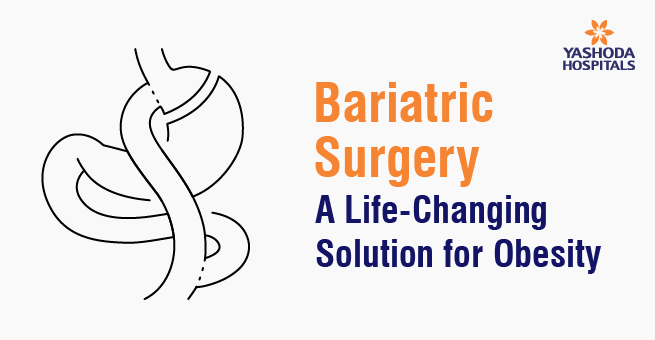
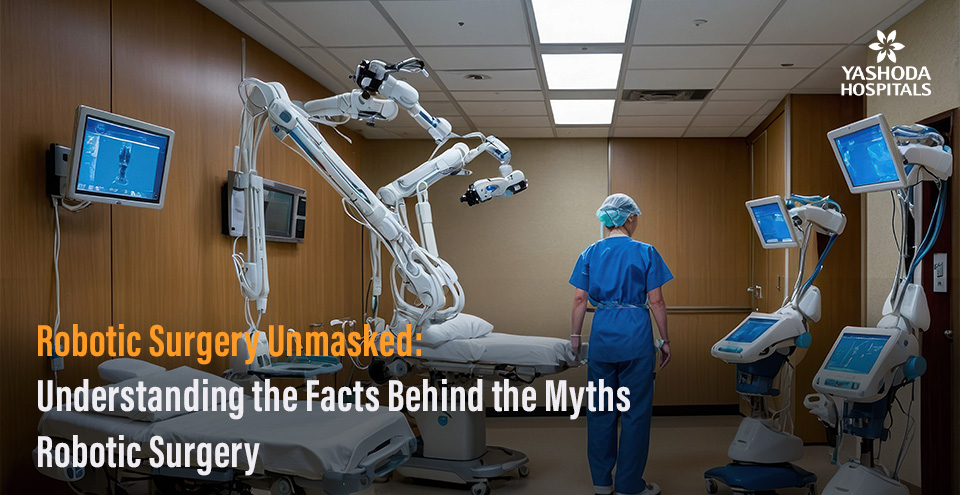

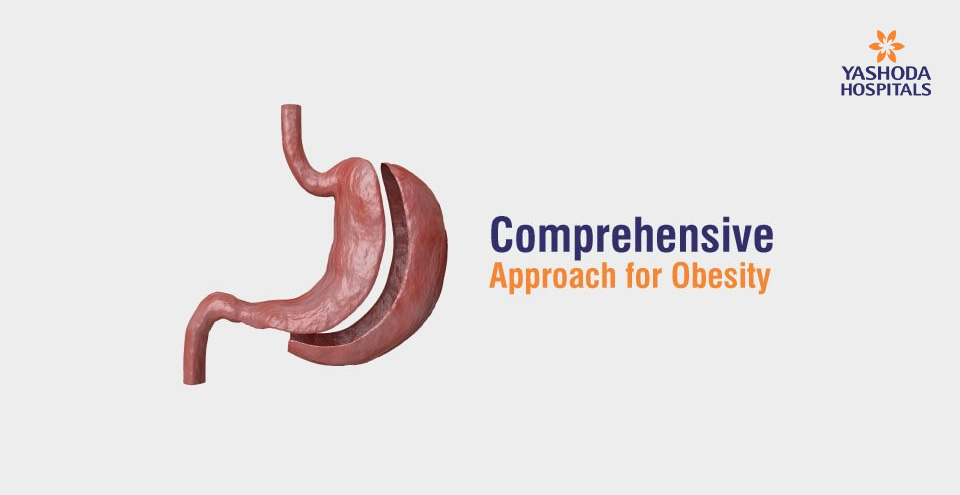

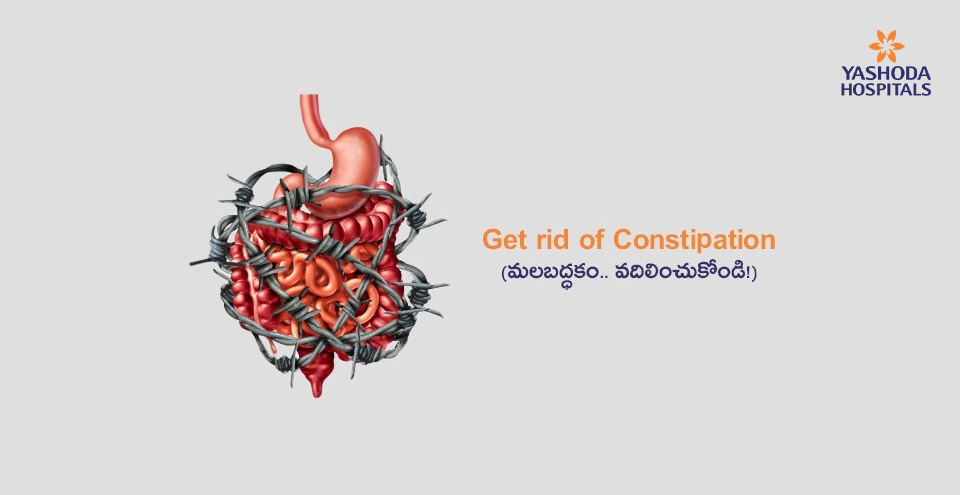







 Appointment
Appointment WhatsApp
WhatsApp Call
Call More
More

